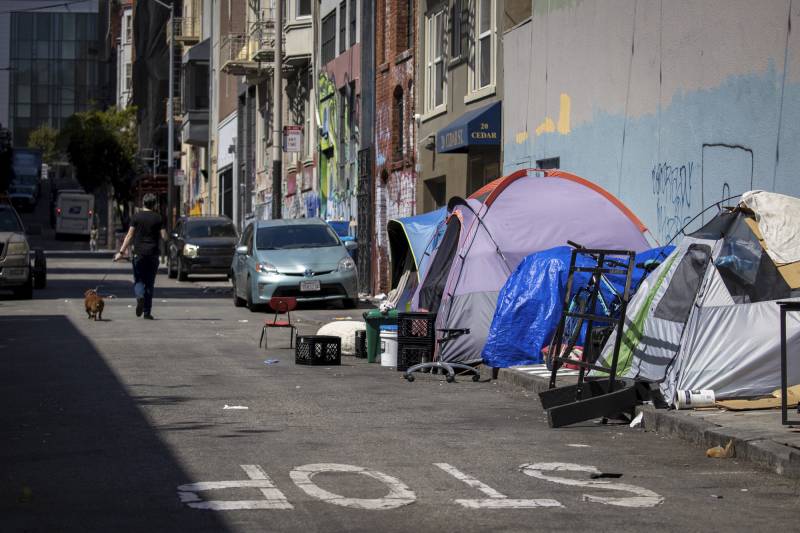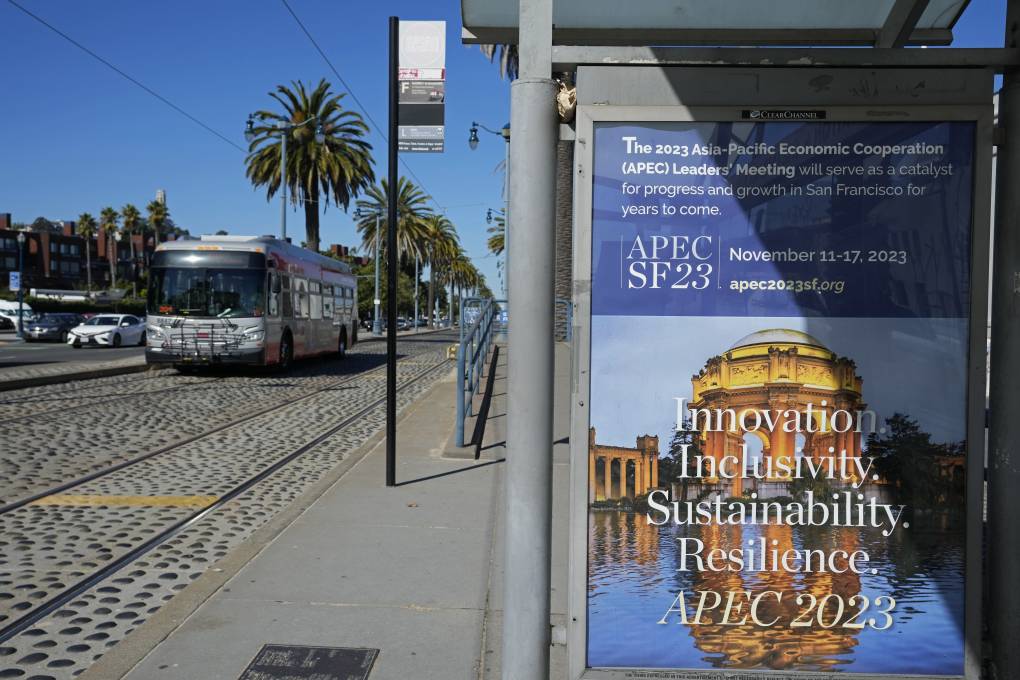San Francisco is suspending access to one of its only walk-in homeless shelters during the upcoming Asia-Pacific Economic Cooperation conference to prioritize beds for unhoused people living near the vicinity of the event, a source told KQED.
The move sheds light on some of the city’s opaque plans for how it is preparing to keep streets clear and counteract doom-loop narratives about crime and homelessness in the city ahead of the major event when President Biden and more than a dozen other heads of state, CEOs and journalists from around the globe will descend on San Francisco.
During the event, the Santa Maria y Marta shelter, located at 1050 S. Van Ness Ave., will reserve its 56 beds for people who typically camp in the APEC high-security zones, according to Jennifer Friedenbach, executive director for the Coalition on Homelessness.

